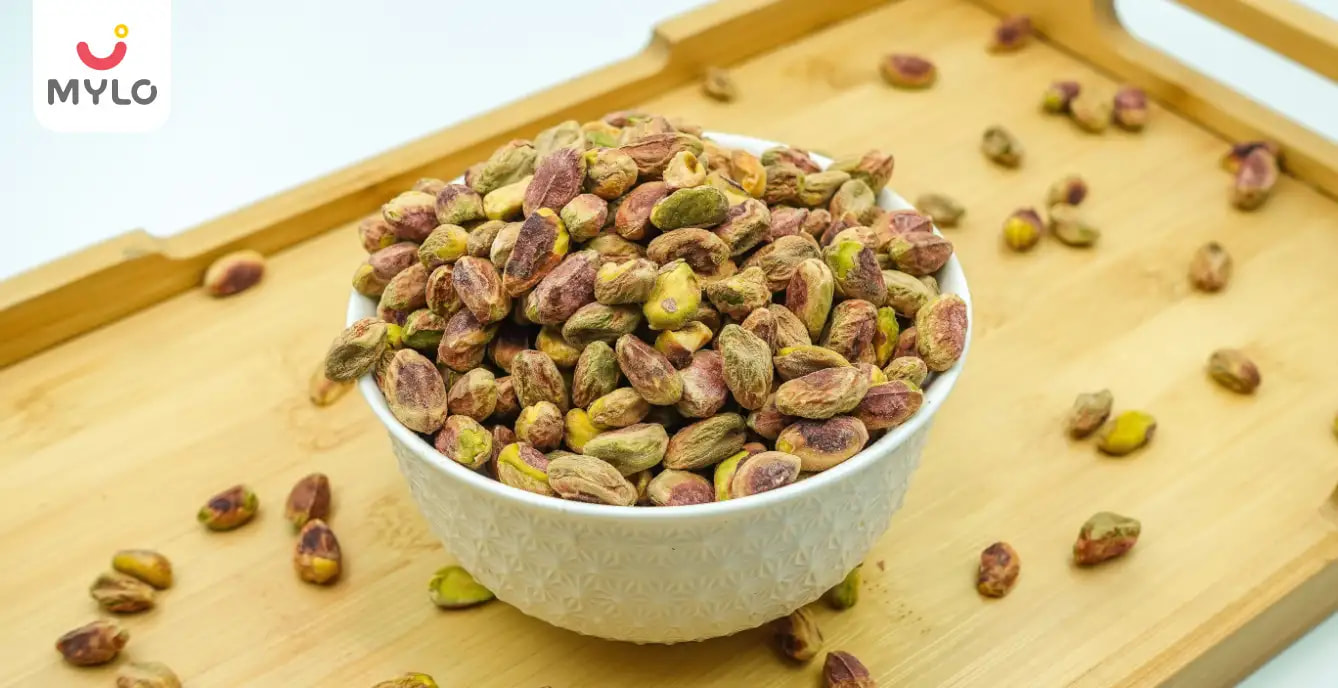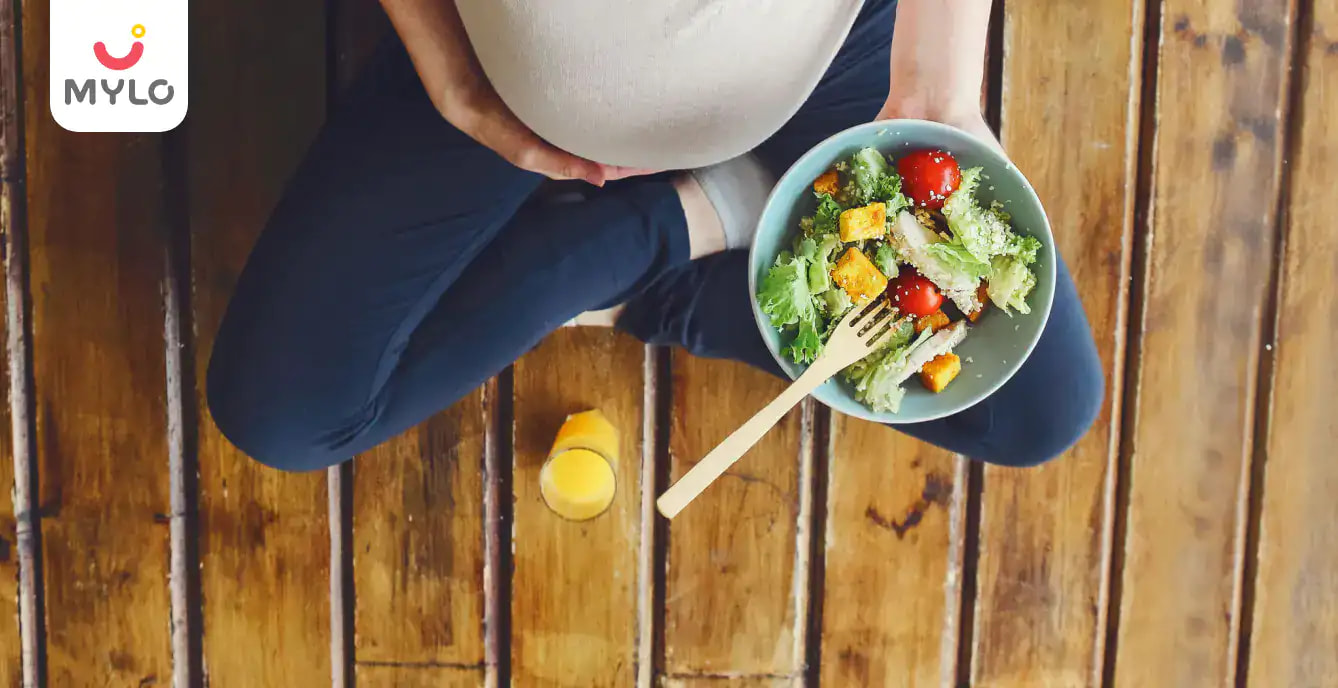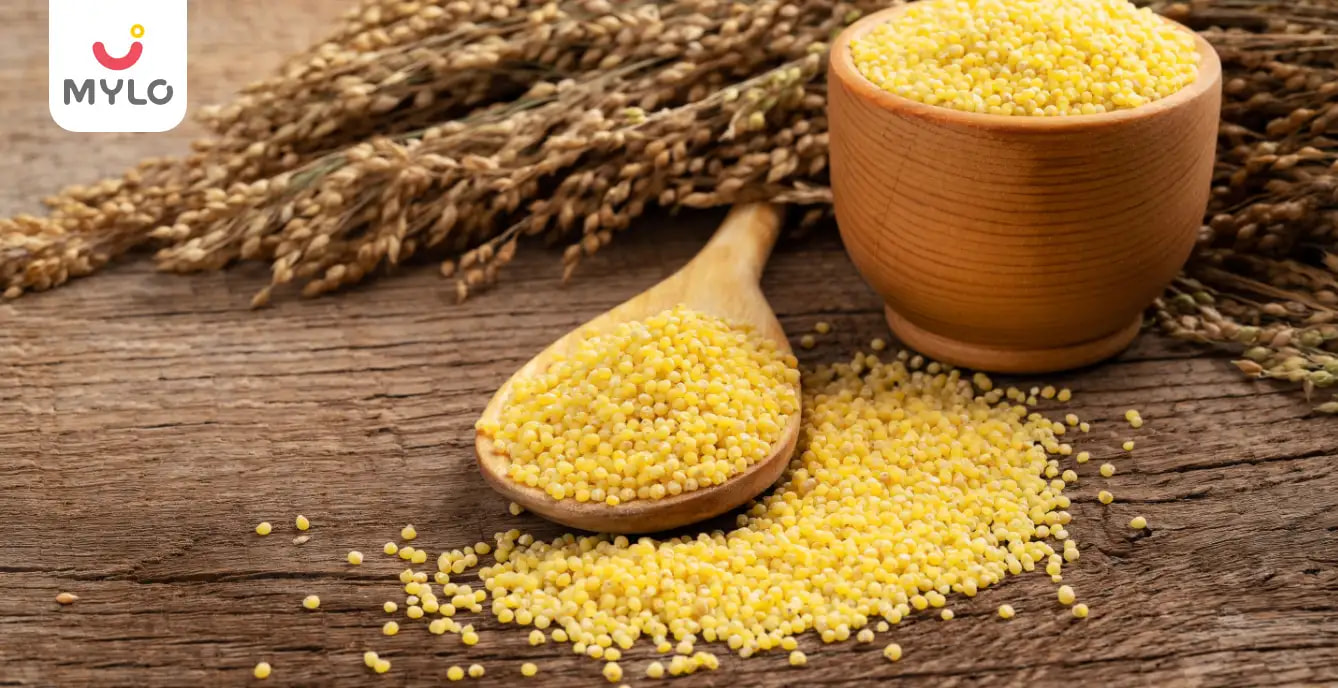Home

Almonds in Pregnancy: Cracking the Nutty Secret to Their Benefits
In this Article

Almonds in Pregnancy: Cracking the Nutty Secret to Their Benefits
Updated on 25 January 2024


Medically Reviewed by
Savita
Diabetes, Weight Loss, Thyroid, PCOS - Masters in Food & Nutrition
View Profile

Pregnancy is a crucial period that demands careful attention to dietary choices for the health and well-being of both the mother and the developing baby. Among the myriad of food options, almonds have emerged as a popular choice. These crunchy little wonders are packed with nutrients that can work wonders for both you and your baby. So, sit back, relax, and let's crack open the nutty secrets of consuming almonds in pregnancy!
Nutritional Value of Almonds
Almonds are highly nutritious nuts and are a rich source of various essential nutrients. Here's a breakdown of the nutrient content found in a 1-ounce (28g) serving of almonds:
Calories: Approximately 160 kcal
Protein: About 6g
Fat: Around 14g (mainly healthy monounsaturated fats)
Carbohydrates: Roughly 6g (of which 3.5g are dietary fiber)
Vitamin E: Provides about 7.27mg (37% of the daily value)
Riboflavin (Vitamin B2): Contains 0.3mg (17% of the daily value)
Calcium: Provides around 76mg (8% of the daily value)
Iron: Contains approximately 1mg (6% of the daily value)
Magnesium: Provides about 76mg (19% of the daily value)
Almonds are also a good source of other essential nutrients such as phosphorus, potassium, and vitamin B6. Additionally, they are rich in antioxidants and healthy fats, making them a valuable addition to a balanced diet.
You may also like: Pista During Pregnancy: Benefits and Side Effects
Is Almond Good for Pregnancy?
Yes, almonds are incredibly good for pregnancy. They provide a wide range of nutrients that are essential for the overall health and development of both the mother and the baby. The high protein content in almonds helps in the formation of new tissues and supports the growth of the baby. Moreover, the healthy fats present in almonds help in the development of the baby's brain and nervous system.
Consuming almonds during pregnancy can also help manage weight and control cravings as they are low in calories and high in fiber. The magnesium in almonds helps regulate blood sugar levels and reduces the risk of gestational diabetes. Additionally, the antioxidants in almonds help boost the immune system and protect against common illnesses during pregnancy.
Benefits of Almonds During Pregnancy
Let us now take a look at the benefits of almonds in pregnancy:
1. Rich in Folic Acid
Almonds, whether raw or soaked, are a great source of folic acid, which is crucial for the development of the fetal brain and to prevent neural tube defects in the baby.
2. Metabolism Enhancement
Almonds provide a healthy source of carbohydrates and dietary fats that aid metabolism, reduce inflammation, oxidative stress, and blood sugar, supporting metabolic health.
3. Weight Management
Almonds can help prevent excessive weight gain during pregnancy by keeping you full for longer periods, thus reducing the risk of unnecessary weight gain.
4. Supplies Iron
Almonds are a good source of iron, meeting a portion of the daily iron requirements during pregnancy and helping to prevent the risks of anemia.
5. High in Protein
Almonds provide plant-based protein, which is crucial for the baby's tissue and organ development.
6. Nutrient-Rich
Almonds are packed with essential nutrients such as antioxidants, vitamin E, protein, and fiber, which can benefit both the mother and the development of the baby.
7. Improves heart health
The healthy fats in almonds, such as monounsaturated fats, help improve heart health and reduce the risk of cardiovascular diseases during pregnancy.
Are There Any Side Effects of Almonds in Pregnancy?
While eating almonds during pregnancy is generally safe, it's essential to consume them in moderation. Some pregnant women may be allergic to almonds, so it's crucial to watch out for any allergic reactions. If you experience symptoms like itching, hives, or difficulty breathing after consuming almonds, consult your healthcare provider immediately.
Overconsumption of almonds can also lead to weight gain as they are high in calories. It's important to remember that almonds should be part of a balanced diet and not consumed in excess. Always consult with your healthcare provider or a registered dietitian before making any significant changes to your diet during pregnancy.
How Many Almonds to Eat per Day During Pregnancy?
The recommended daily intake of almonds during pregnancy varies depending on individual needs and dietary requirements. Generally, it is safe to consume a handful of almonds (about 1 ounce or 28 grams) as part of a balanced diet.
It's important to note that almonds should not be the sole source of nutrition during pregnancy. It's essential to include a variety of nutrient-rich foods in your diet to ensure you and your baby are getting all the necessary nutrients for a healthy pregnancy.
You may also like: Raisins During Pregnancy: Benefits, Risks & Side Effects
How to Eat Almonds During Pregnancy?
There are various ways to incorporate almonds into your diet and enjoy the benefits of almonds during pregnancy:
1. Raw almonds
Enjoy a handful of raw almonds as a quick and healthy snack between meals.
2. Almond butter
Spread almond butter on whole-grain toast or use it as a dip for fruits and vegetables.
3. Almond milk
Use almond milk as a dairy-free alternative in smoothies, cereals, or other recipes.
4. Almond flour
Replace regular flour with almond flour in baking recipes to add a nutty flavor and boost the nutritional value.
5. Soaked almonds
Soak almonds overnight in water and consume them the next day. Consuming soaked almonds during pregnancy can improve digestibility and nutrient absorption.
Remember to opt for unsalted almonds and avoid flavored varieties that may contain added sugars or artificial additives.
You may also like: Anjeer in Pregnancy: Benefits & Side Effects of Eating Figs
Final Thoughts
Almonds in pregnancy can be a nutritious and delicious addition to a pregnant woman's diet. They provide essential nutrients that support the healthy development of the baby and help maintain the mother's overall well-being. However, it's important to consume almonds in moderation and consult with a healthcare provider or a registered dietitian for personalized dietary recommendations during pregnancy.
References
Bahaeddin, Z., Khodagholi, F., Foolad, F., Emadi, F., Alijaniha, F., Zareh Shahamati, S., Tavassoli Yousef Abadi, R., & Naseri, M. (2022). Almond intake during pregnancy in rats improved the cognitive performance of adult male offspring. Nutritional Neuroscience, 1–13.
Gignac, F., Romaguera, D., Fernández-Barrés, S., Phillipat, C., Garcia Esteban, R., López-Vicente, M., Vioque, J., Fernández-Somoano, A., Tardón, A., Iñiguez, C., Lopez-Espinosa, M.-J., García de la Hera, M., Amiano, P., Ibarluzea, J., Guxens, M., Sunyer, J., & Julvez, J. (2019). Maternal nut intake in pregnancy and child neuropsychological development up to 8 years old: a population-based cohort study in Spain. European Journal of Epidemiology, 34(7), 661–673.




Medically Reviewed by
Savita
Diabetes, Weight Loss, Thyroid, PCOS - Masters in Food & Nutrition
View Profile


Written by
Anupama Chadha
Anupama Chadha, born and raised in Delhi is a content writer who has written extensively for industries such as HR, Healthcare, Finance, Retail and Tech.
Read MoreGet baby's diet chart, and growth tips

Related Articles
Related Questions
Influenza and boostrix injection kisiko laga hai kya 8 month pregnancy me and q lagta hai ye plz reply me

Hai.... My last period was in feb 24. I tested in 40 th day morning 3:30 .. That is faint line .. I conculed mylo thz app also.... And I asked tha dr wait for 3 to 5 days ... Im also waiting ... Then I test today 4:15 test is sooooo faint ... And I feel in ma body no pregnancy symptoms. What can I do .

Baby kicks KB Marta hai Plz tell mi

PCOD kya hota hai

How to detect pcos

RECENTLY PUBLISHED ARTICLES
our most recent articles

Pregnancy Best Foods
Popping the Question: Is It Safe to Indulge in Popcorn in Pregnancy?
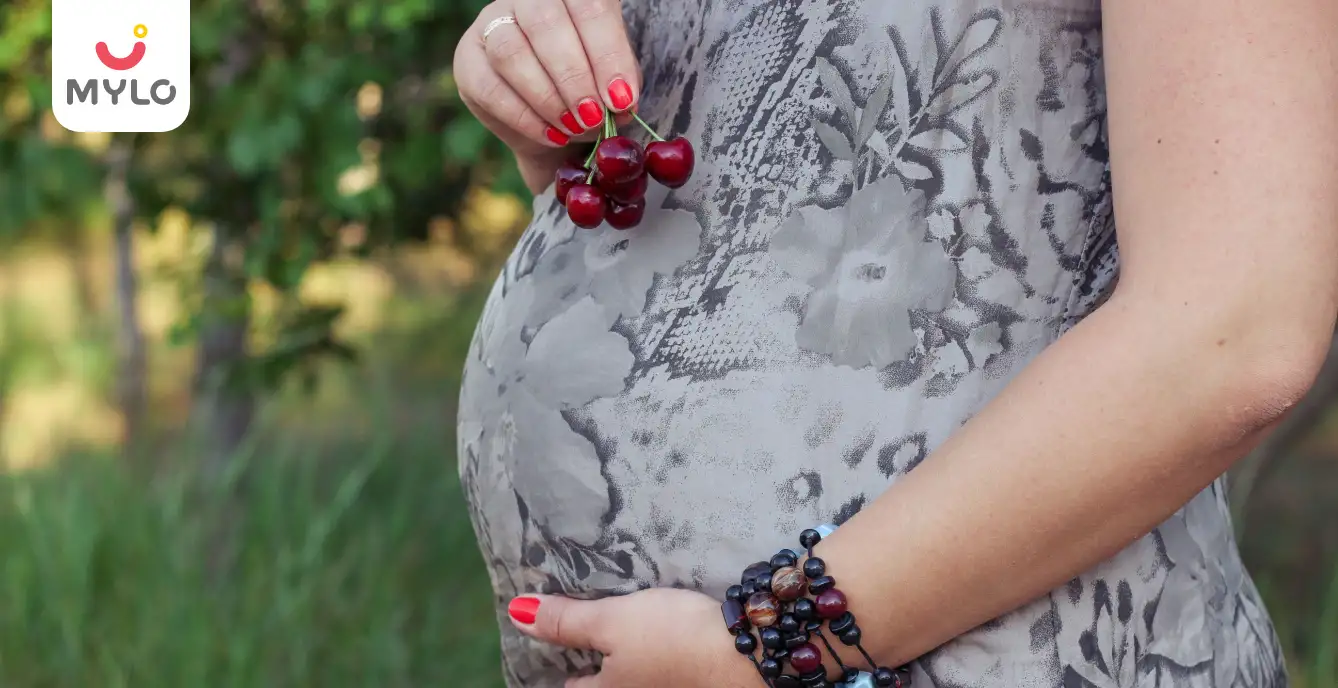
Pregnancy Journey
Cherry Fruit in Pregnancy: What Every Expectant Mother Should Know
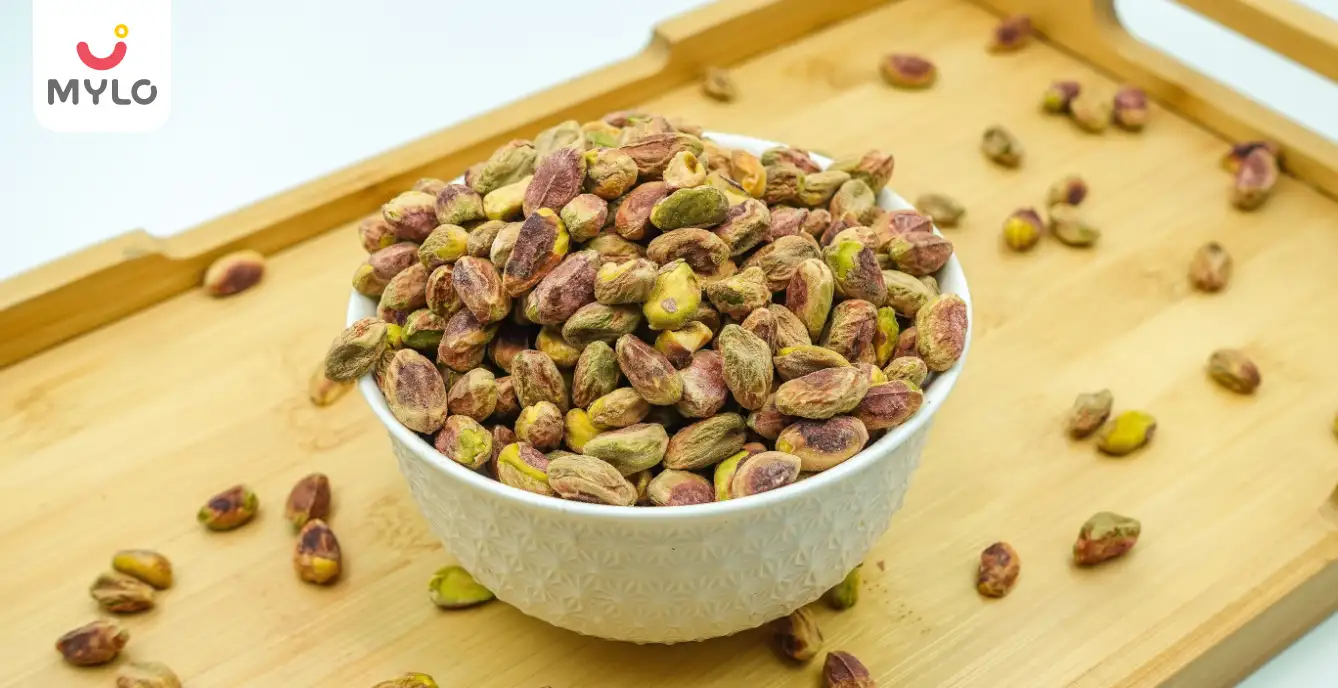
Pregnancy Journey
The Ultimate Guide to Consuming Pista During Pregnancy
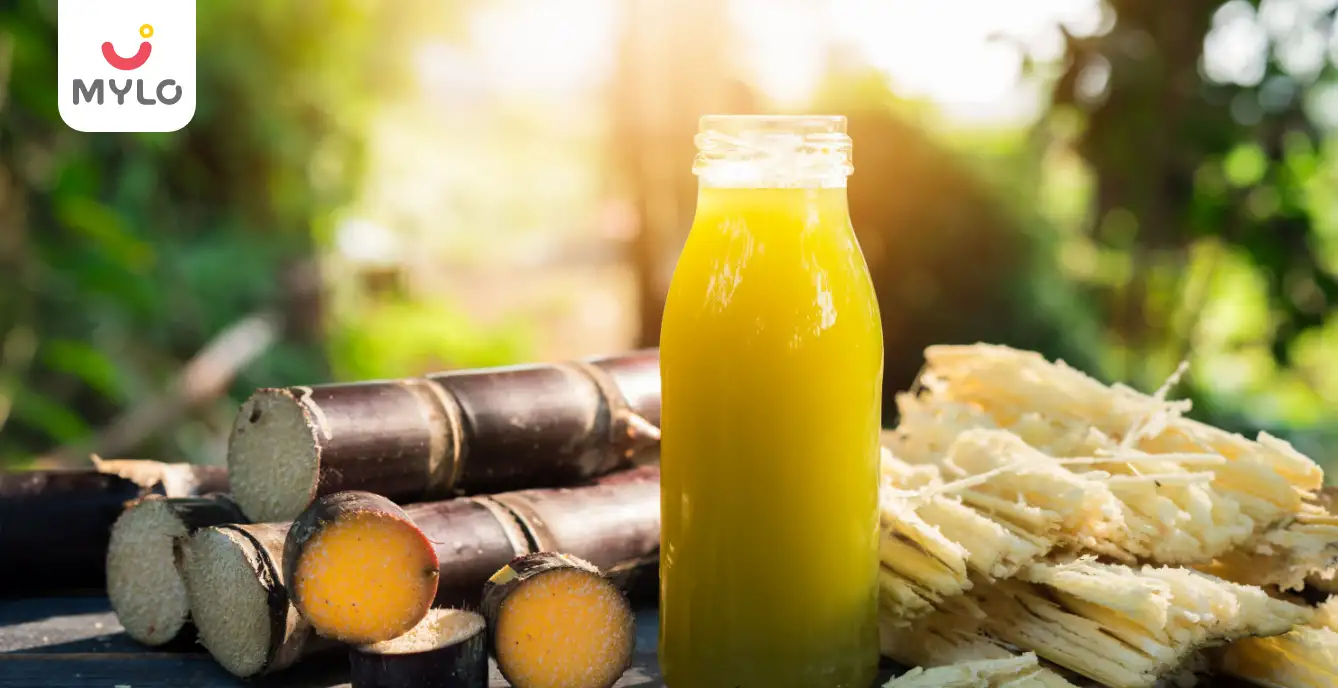
Sugarcane Juice in Pregnancy: Benefits & Precautions
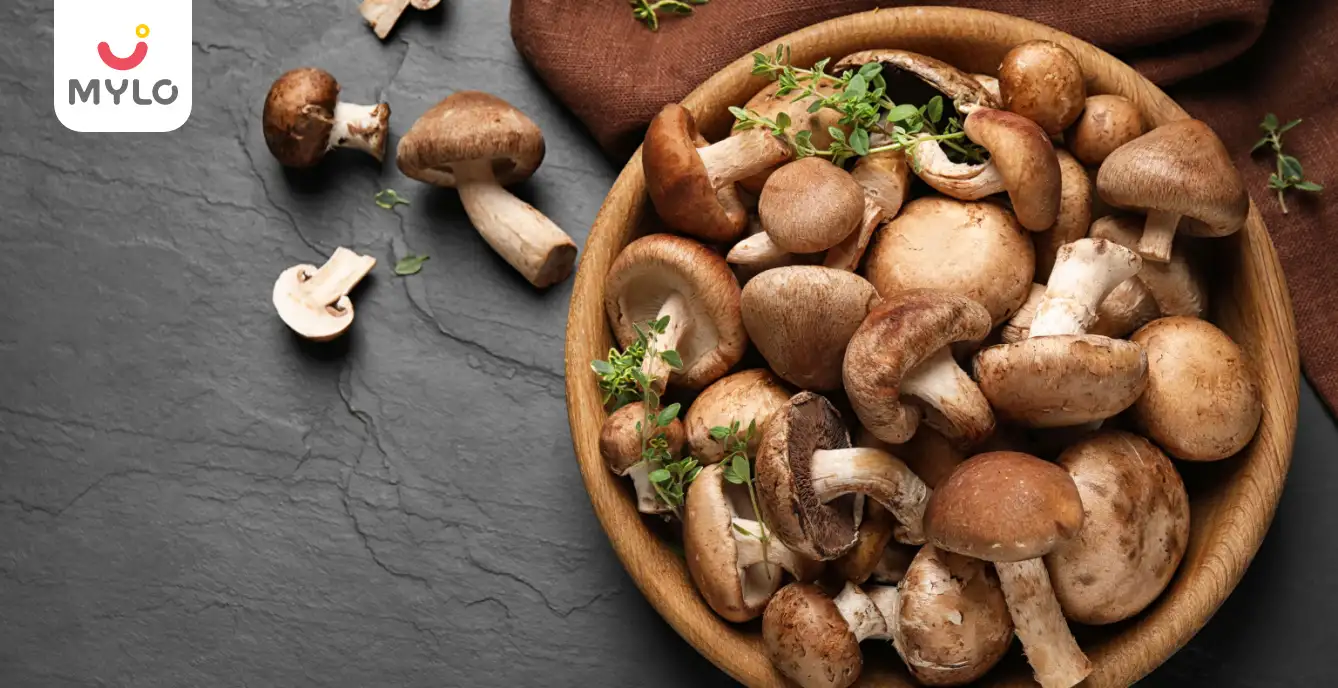
Pregnancy Best Foods
The Ultimate Guide to Consuming Mushroom in Pregnancy

Education
The Ultimate Compilation of GK Questions and Their Answers
- The Ultimate Compilation of 2 Letter Words for Children
- The A-Z Guide to Identifying Root Vegetables Names for Kids
- 11 to 20 Table: A Complete Overview for Children
- Tables 1 to 10: A Complete Overview for Children
- Can Herbal Supplements Boost Your Chances of Getting Pregnant?
- Sesame Seeds in Pregnancy: Nutritional Value, Benefits & Side Effects
- Betnesol Injection in Pregnancy: The Ultimate Guide to Benefits and Risks
- Pradhan Mantri Matru Vandana Yojana (PMMVY) to Give Rs 5,000 to Pregnant Women
- The A-Z Guide to Identifying Green Vegetables Names for Kids
- Anjeer in Pregnancy: Benefits & Side Effects of Eating Figs
- Black Grapes During Pregnancy: Benefits & When to Avoid
- The Ultimate Guide to the Best Series on Hotstar- Hindi
- The Ultimate Guide to Teaching Children Tables 1 to 20
- Thought of the Day for Kids to Spark Imagination & Positivity


AWARDS AND RECOGNITION

Mylo wins Forbes D2C Disruptor award

Mylo wins The Economic Times Promising Brands 2022
AS SEEN IN

- Mylo Care: Effective and science-backed personal care and wellness solutions for a joyful you.
- Mylo Baby: Science-backed, gentle and effective personal care & hygiene range for your little one.
- Mylo Community: Trusted and empathetic community of 10mn+ parents and experts.
Product Categories
baby carrier | baby soap | baby wipes | stretch marks cream | baby cream | baby shampoo | baby massage oil | baby hair oil | stretch marks oil | baby body wash | baby powder | baby lotion | diaper rash cream | newborn diapers | teether | baby kajal | baby diapers | cloth diapers | laundry detergent 6472 | lactomama lactation granules |



